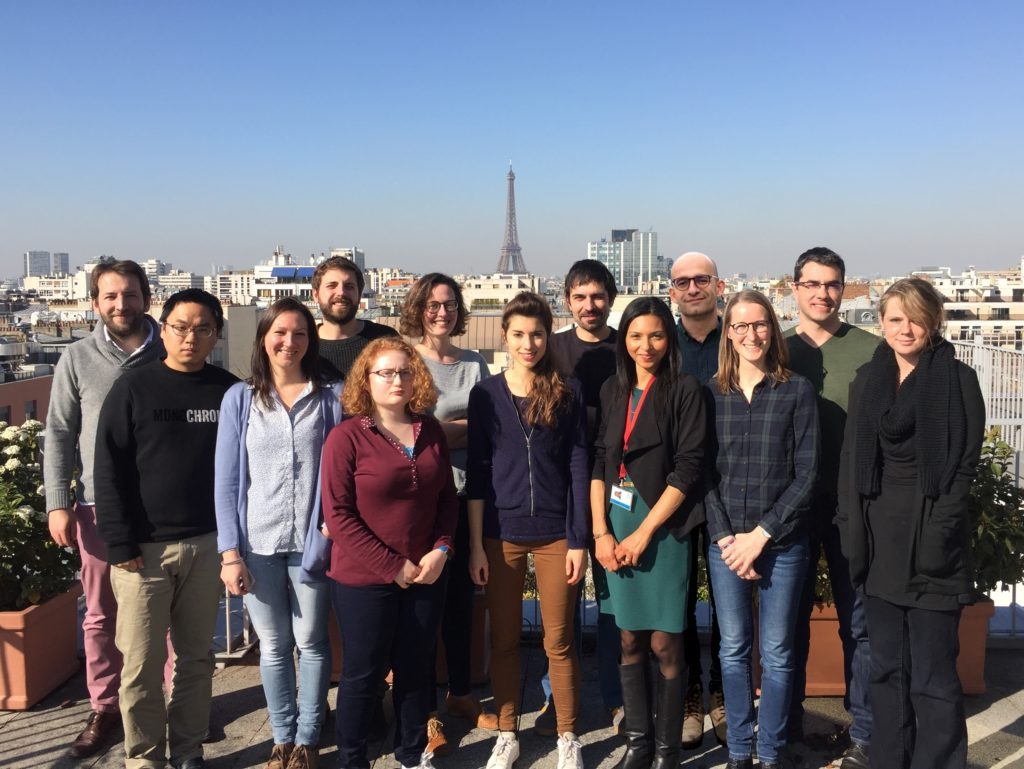Postdoctoral position in mathematical/statistical modelling of the COVID-19 pandemic at Institut Pasteur, Paris
Environment
The last few years have been marked by the emergence and spread of a number of infectious diseases across the globe. For example, outbreaks of Zika and chikungunya in the Americas, Ebola Virus Disease in West Africa and MERS coronavirus in the Middle East each resulted in substantial public health burden and received widespread international attention. Most recently, the COVID-19 pandemic has had devastating impact on populations across the world. These emergences have highlighted the many challenges faced by the public health community to anticipate, assess, manage and control these epidemics. In addition, established infectious diseases such as seasonal influenza, dengue or malaria keep on affecting hundreds of millions of persons each year.
In this context, the main research objective of the Mathematical Modelling of Infectious Diseases at Institut Pasteur is to develop state-of-the-art statistical and mathematical methods to analyze epidemic data, with the aim to increase our understanding of how pathogens spread in populations, assess the impact of interventions, support policy making and optimize control strategies. These analyses benefit from a strong network of collaborators in the field (in particular within the large International Network of Pasteur Institutes across the world) but also of strong connections with other infectious disease mathematical modellers. Our approach is highly multidisciplinary, looking at infectious diseases through multiple perspectives, multiple scales and multiple data streams. We work closely with public health agencies both in France and abroad to ensure our assessments can inform the public health response to epidemics.
Since the start of the COVID-19 pandemic, our research Unit has been heavily involved in the French response to the pandemic, providing modelling support to the French Ministry of Health and the French CDC (Santé Public France) to inform policy making and planning.
For more details about our research projects, please visit our webpage at
https://research.pasteur.fr/en/team/mathematical-modelling-of-infectious-diseases/
Job description
We are seeking one postdoc to contribute to COVID-19 related research projects of the Unit. These projects include: now-casting and forecasting of a second pandemic wave to inform healthcare planning; assessment of the impact of different types of control measures including vaccination, social distancing interventions, tracing apps, testing and isolation; statistical analysis integrating multiple data types (e.g. detailed death and hospitalization records, case and serological data) to better characterize the burden of disease and predict current levels of immunity; analyses of outbreak data in specific settings (e.g. households, hospitals).
The postdoc will be expected to work with and develop state-of-the-art statistical and mathematical methodology that may involve Markov Chain Monte Carlo Sampling (MCMC), Sequential Monte Carlo sampling or Approximate Bayesian Computation with compartmental or agent-based models of disease transmission. The exact projects the successful applicant will undertake will be determined in discussion with the team, taking into account the applicants’ interests and experience.
The postdoc will be supervised by Dr Simon Cauchemez and will be given a one-year contract with possibility to extend it for longer periods, should both parties agree.
Interested candidates should contact email Cécile Limouzin (cecile.limouzin@pasteur.fr) with a CV, statement of interest and contact details of two referees that will be contacted directly after the interviews. The deadline for applications is 6 September 2020, with contracts starting as soon as possible.
Salary: Depending on education and experience.
Location: Mathematical Modelling of Infectious Diseases Unit, Institut Pasteur, 28 rue du Dr Roux, 75724 Paris Cedex 15, France.
Person specification:
- Research experience of working with mathematical and/or statistical models.
- A strong interest in infectious disease epidemiology.
- Ability to collate and analyse data, interpret and present results to a high standard using a range of specialised research techniques.
- Good knowledge of the R statistical programming language.
- Programming experience in C, C++ or Java is desirable
- Excellent verbal and written communication skills. The working language of the laboratory is English.
- Experience in communicating research findings to a non-specialist audience.
- Ability to work independently but also as part of a larger interdisciplinary research team.
- PhD in one of the following areas: infectious disease epidemiology, mathematics, statistics, physics, computer science, population biology or a similarly quantitative discipline.




